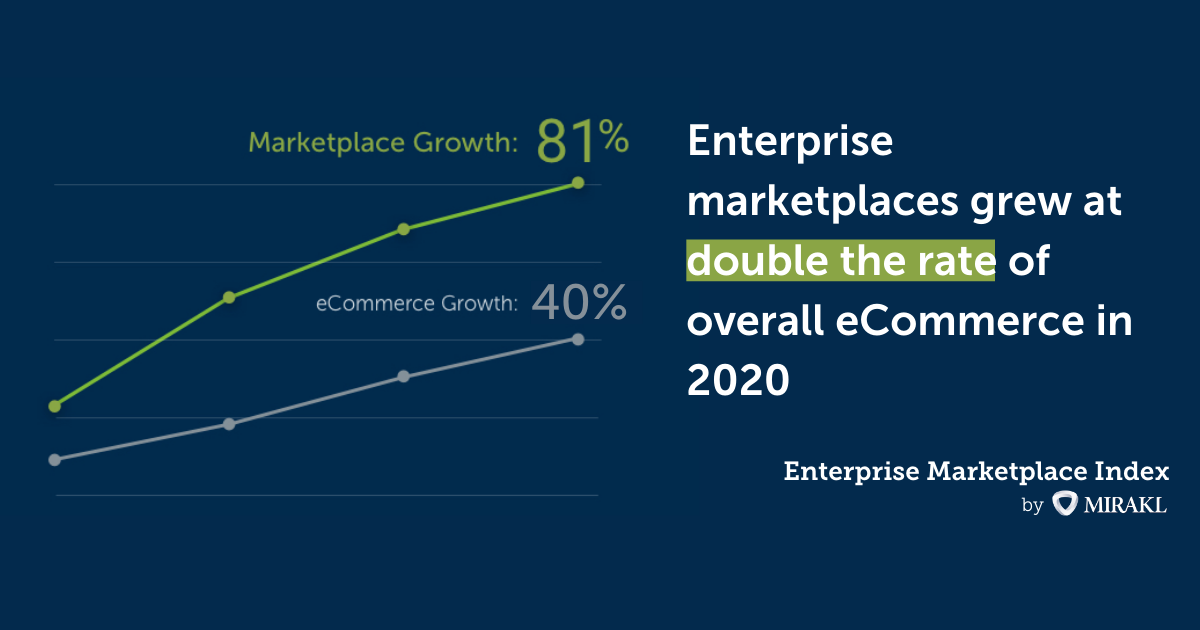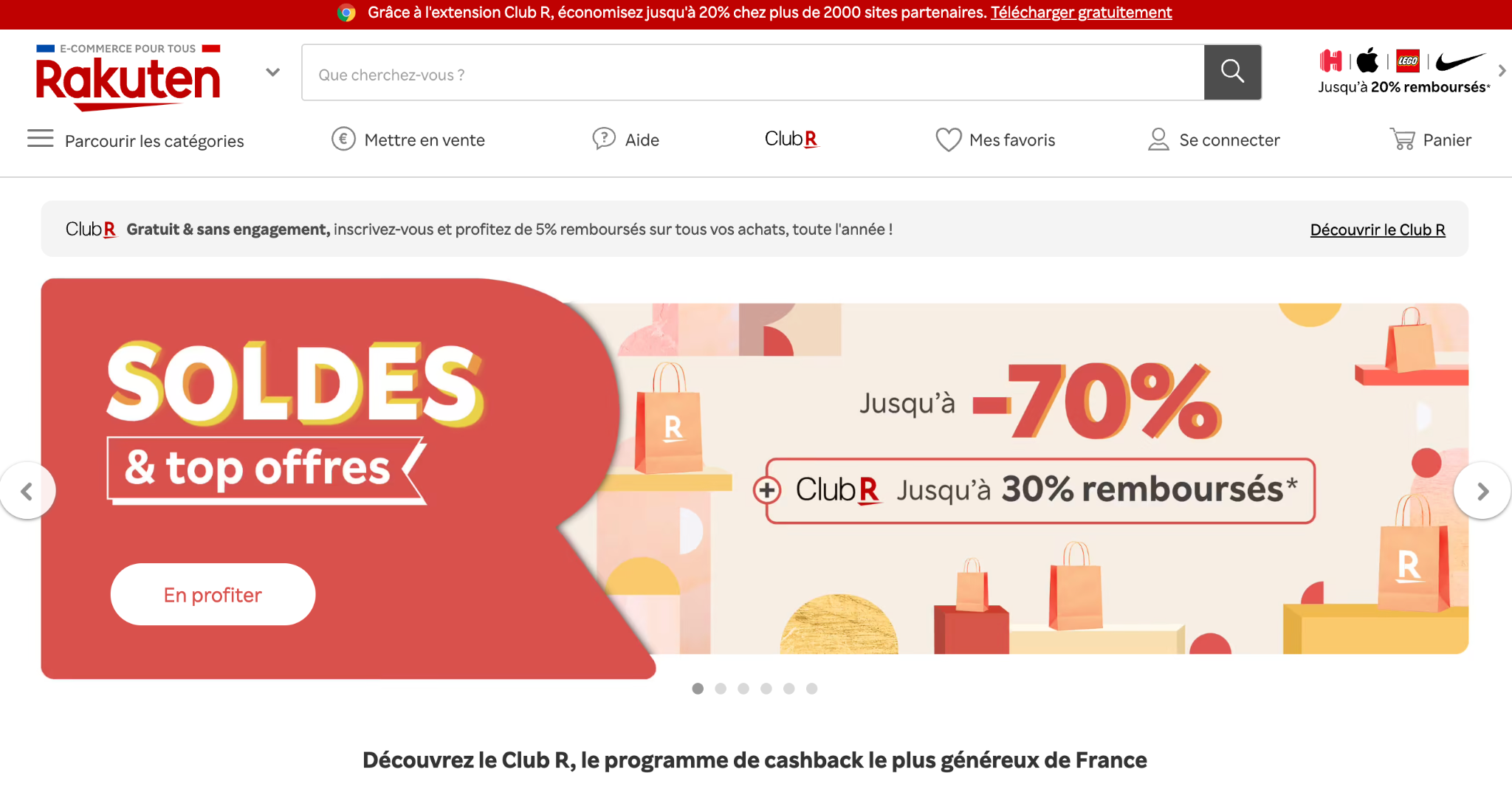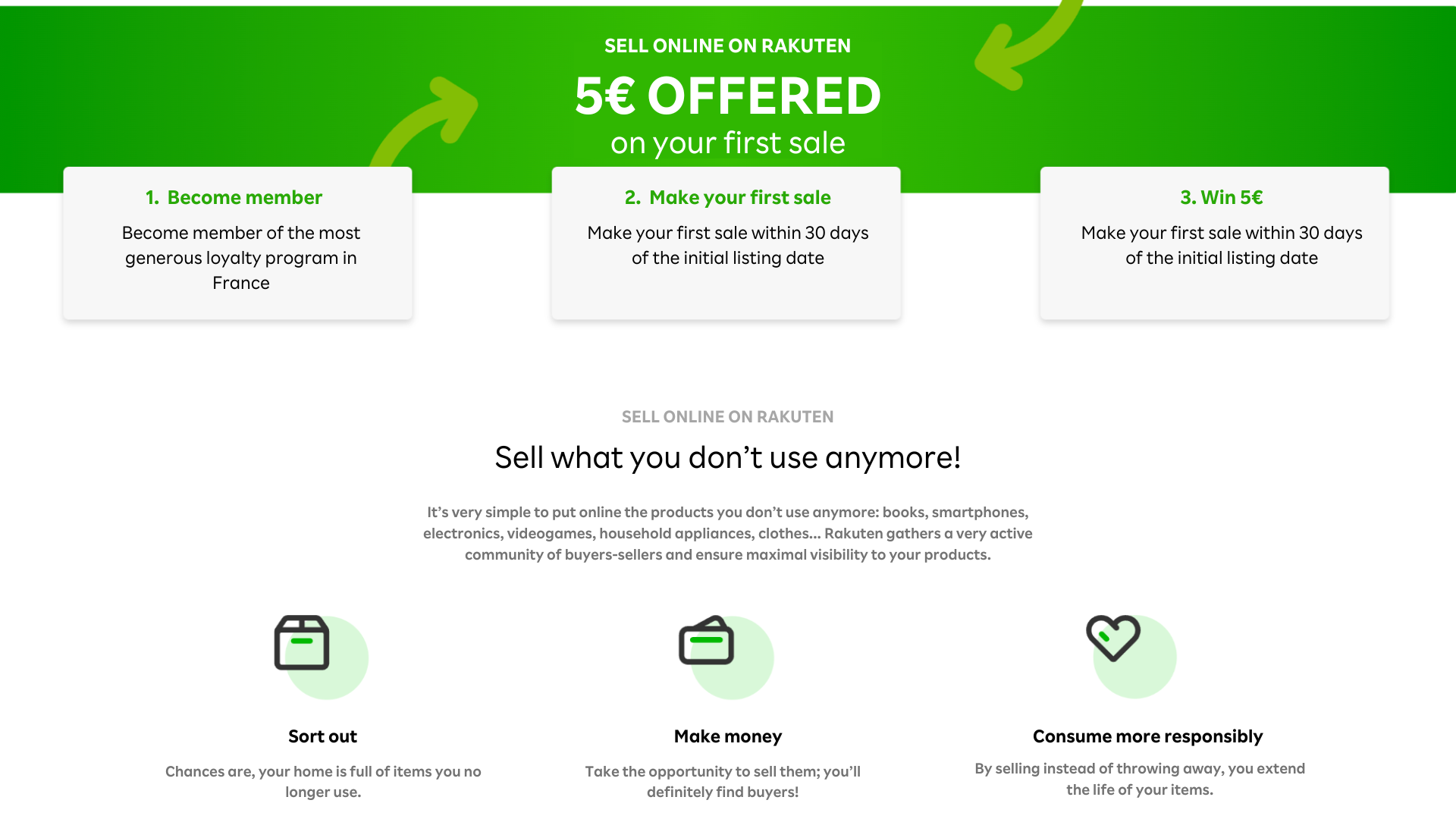Marketplace: Essential Guide to Boosting Your E-Commerce
8.8 billion dollars: yes, that's quite a sum. And, above all, it's the estimated share of sales on marketplaces between now and 2025. This would represent 70% of e-commerce, according to McKinsey (2022) and Be STF research & analysis.
Digital marketplaces continue to grow and seduce buyers and sellers alike. Good news for your company: it's not too late to learn how to ride the wave.
If you're interested in the world of marketplaces, you've come to the right place: so, what is a marketplace? How does it work? What are the best practices for selling effectively on them?
Follow the guide!
Definition: What is a Marketplace?
A marketplace is an online platform that facilitates contact between buyers and sellers. It's also known as a marketplace, shopping platform, multi-vendor e-commerce site..
On this type of website, sellers (independent, professional or private) can sell their products, solutions or services. In most cases, a commission is charged by the marketplace for each sale made. Other remuneration models exist (and we'll tell you about them shortly).
To best visualize this definition, imagine a large digital shopping mall. The marketplace is the mall. Each store inside represents a partner vendor. Visitors, meanwhile, can stroll from store to store... without leaving the mall, without disconnecting from the marketplace.
Does this business model appeal to you? You're not alone. For several years now, the marketplace world has been booming. Consumers are seduced by it, with 92% of shoppers planning to use marketplaces more and more (Mirakl 2022). 52% of French people even say they prefer to do all their shopping on a single site (Yougov 2021).
For sellers, a presence on a marketplace offers increased visibility, web traffic and sales. For example, in 2020, despite the Covid-19 crisis, partner sellers increased their sales by an average of 24% on marketplaces. Marketplaces grew at twice the rate of e-commerce. And this is just the beginning! (Mirakl study, 2021).

How do Marketplaces work?
Do you sell products or services? BtoC or BtoB? There's bound to be a marketplace platform that's right for you. But before choosing one, it's important to understand the different models that exist.
Not all marketplaces are remunerated in the same way. For example, some marketplaces offer their vendor partners :
- A commission on sales: the marketplace takes a percentage of each sale. These commissions may be fixed or proportional to the amount of the transaction.
- Registration or listing fees: sellers must pay a one-off or recurring fee to publish their products, services or solutions on the platform.
- Additional fees: for example, some platforms like Rakuten offer services to outsource inventory management, storage or shipping of your products.
- Monthly subscriptions : the price of these subscriptions generally covers features and benefits for partner sellers (such as greater visibility for their offers, lower commissions, etc.).
- Paid advertising: to highlight certain products or services, platforms may offer paid promotion options on ads.
Some marketplaces may also combine different remuneration models, to diversify their revenue streams. What's more, some platforms also offer direct sales. This is not the case with Rakuten, which focuses 100% of its efforts on sellers.
At Rakuten, our compensation model is based on two offers, tailored to your business:
- A free starter package, with a higher variable commission and management fees.
- A paid expert subscription, with a lower variable commission and management fees.
Why sell on a Marketplace?
Now you know what a marketplace is, and how this type of platform pays for itself. But as a professional seller, do you know why you should choose this simplified form of e-commerce?
If you're still hesitating to take the plunge, here are 7 advantages of selling on Marketplace 2.0:
- Improve your company's visibility: each marketplace benefits from an established user base and traffic. Sellers can thus increase their visibility.
- Multiply sales opportunities: with its large, ready-to-buy customer base, a marketplace facilitates the generation of new opportunities. Sellers benefit from a continuous flow of potential customers to their listings.
- Reduce marketing costs: by joining a marketplace, sellers don't have to start from scratch. They can take advantage of integrated marketing tools (product promotion, targeted advertising, recommendation of similar products) and an existing website (without having to develop their own technological infrastructure and communicate on it). The marketplace's loyal visitor base also limits acquisition costs. The result? Big savings!
- Simplify sales and logistics processes: many marketplaces, such as Rakuten, offer order management, storage, packaging and shipping services. With such simplified processes, sellers can concentrate on producing quality products.
- Secure transactions: selling on a marketplace means taking no risks when it comes to secure payment. This ecosystem is highly regulated. As an intermediary, the platform guarantees the smooth running of your sales transactions and data management.
- Create a complementary sales channel: joining a marketplace doesn't mean giving up your traditional sales channel (physical store, e-commerce site, social shopping, etc.). It simply means multiplying additional sales opportunities! The marketplace is a choice compatible with your other channels, to amplify your reach on the Internet.
- Boosting trust and credibility : a reputable marketplace offers a high level of credibility to sellers. And the good news is that buyers prefer to shop on a platform they can trust. This is your chance to earn their trust too!
What are the different types of Marketplace?
There's a marketplace for every business. Whatever your sector, you can invest..
1. A B2C marketplace
A case in point? Rakuten.
At Rakuten, we've been supporting the digitalization of 8,500 B2C businesses since 2002. Sellers of products or services for private individuals can create their online store on our marketplace, in a digital shopping mall visited by 15 million people.

2. C2C Marketplace
A case in point? Rakuten too!
In our 2.0 shopping mall, 50% of products sold are second-hand. Consumers can sell their products, thanks to the "consumer to consumer" model. They benefit from numerous advantages (€5 free on the first sale, immediate redemption, Club R loyalty points, etc.)

3. B2B Marketplace
A case in point? Unite (formerly Mercateo).
Unite (formerly Mercateo) has been revolutionizing the B2B market for 20 years. On this business-to-business marketplace, companies can buy office supplies and furniture, industrial equipment, catering equipment... A total of over 3.5 million products, in 13 countries!
In B2B, there are also numerous "cloud marketplaces". These online platforms offer cloud services and solutions from different suppliers, accessible from a single location.
4. Services marketplace
A case in point? Rover.
Rover is a specialized marketplace enabling pet owners to find pet sitters and walkers, worldwide. Over 2 million pet owners in 10 countries have booked services through the marketplace!

5. Vertical Marketplace
A case in point? Doctolib.
Doctolib is the leading vertical marketplace for e-health. The site enables over 340,000 healthcare establishments in Europe to book appointments online for patients. today, 80 million patients use the platform!

6. Joining and selling on a Marketplace: best practices
Tempted by the marketplace adventure? Here are the steps and best practices to help you get started:
- Find the right platform: find out how to choose a marketplace for your e-commerce business. But beyond the platform itself, there's a crucial question: should you opt for a marketplace or create your own independent online business?
- Setting up an account: each digital marketplace has its own procedures. With our solution, for example, registration takes just a few clicks. All you have to do is create a professional seller account and follow the steps indicated. Once your details have been validated, you can start selling your products straight away. Simple, fast and effective.
- Define the right pricing strategy : on a marketplace, the prices of your products can be compared. Remember to set competitive prices to attract buyers.
- Optimize your product descriptions: quality descriptions and photos are essential for selling your products. Without them, it's hard to establish your credibility and win the trust of buyers.
- Ensure good stock management : if you choose a platform that doesn't manage your stocks, it's your responsibility to ensure that your products are always available, to avoid any problems when orders are placed. Check your stocks regularly, set a critical threshold for restocking, and work (if necessary) with several suppliers to keep up to date.
- Deliver quality customer service : customer satisfaction is a priority. It is then analyzed by the marketplaces. At Rakuten, we use the Merchant Quality Score. It's based on ratings and opinions given by buyers, delivery experience and catalog quality. The higher the score, the greater the visibility of the partner seller's ads in strategic locations (Google Shopping pages, price comparison sites, product category home page, etc.)
- Benefit from ongoing support: at Rakuten, all our sellers have access to an E-Commerce Consultant. These dedicated E-Commerce Consultants support the platform's 8,500 professional sellers on a daily basis. Got a question? A need? We've got you covered!
Ready to develop your B2C sales outlet on a marketplace? To help your growth take off, join Rakuten France.
